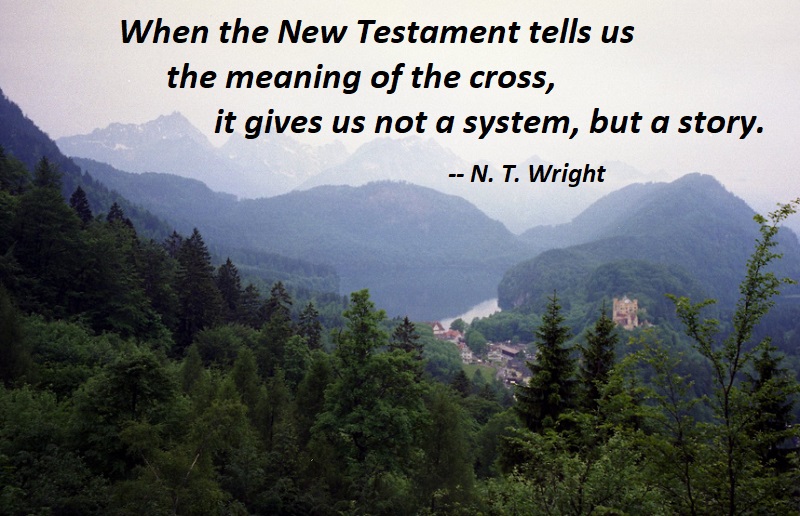And with all this we lift up our eyes and realize that when the New Testament tells us the meaning of the cross, it gives us not a system, but a story; not a theory, but a meal and an act of humble service; not a celestial mechanism for punishing sin and taking people to heaven, but an earthly story of a human Messiah who embodies and incarnates Israel’s God and who unveils his glory in bringing his kingdom to earth as in heaven. The Western church – and we’ve all gone along with this – has been so concerned with getting to heaven, with sin as the problem blocking the way, and therefore with how to remove sin and its punishment, that it has jumped straight to passages in Paul that can be made to serve that purpose. It has forgotten that the gospels are replete with atonement theology, through and through — only they give it to us not as a neat little system, but as a powerful, sprawling, many-sided, richly revelatory narrative in which we are invited to find ourselves, or rather to lose ourselves and to be found again the other side. We have gone wading in the shallow and stagnant waters of medieval questions and answers, taking care to put on the right footwear and not lose our balance, when only a few yards away is the vast and dangerous ocean of the gospel story, inviting us to plunge in and let the wild waves of dark glory wash us, wash over us, wash us through and through, and land us on the shores of God’s new creation.
— N. T. Wright, The Day the Revolution Began, p. 415-416
[Photo: From Schloß Neuschwanstein, Germany, June 2, 1997]
